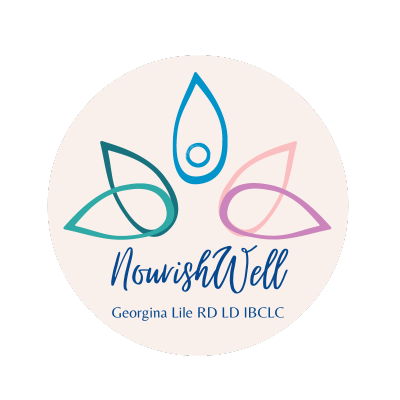Nutrition and Lifestyle for Your Fertility Journey
The path to pregnancy is a deeply personal and unique journey, and for many, it begins with a struggle to conceive. While numerous factors influence fertility, nutrition and lifestyle choices play a pivotal role. In this blog, we will explore how adopting fertility-friendly nutrition and lifestyle practices can enhance your chances of conceiving and support your overall reproductive health.
Understanding Fertility
Fertility is the result of a complex interplay between hormones, reproductive organs, and overall health. Various factors can affect fertility in both men and women, including age, genetics, nutrient deficiencies, and underlying medical conditions. The presence of chronic inflammation can profoundly impact fertility. However, certain lifestyle and dietary choices can improve inflammation as well as optimize egg and sperm quality to increase fertility.
Inflammation is a normal process your body uses to help it heal from infections and injuries. However, regularly consuming inflammatory foods can result in long-term, low-grade inflammation that may negatively impact fertility. In women, inflammation can disrupt ovulation and a regular menstrual cycle, and can contribute to endometriosis, reduced ability of a fertilized egg to implant, and more frequent miscarriages. In men, inflammation can reduce sperm quality and quantity.
Balancing your nutrition and eating certain foods as well as taking a few targeted supplements have been shown to assist in several areas that are important contributors to fertility including inflammation. For example, studies show that nutritional strategies can help balance and regulate the menstrual cycle, aid ovulation, improve the quality and quantity of sperm, and reduce the time it takes for couples to get pregnant.
Nutrition for Fertility
Balanced Anti-inflammatory Diet: Anti-inflammatory diets like the Mediterranean diet are nutrient-rich and anti-inflammatory because they contain a lot fruits, vegetables, legumes, whole grains, and poultry. These provide essential vitamins, minerals, and antioxidants crucial for fertility. Maintaining a well-balanced diet is fundamental for reproductive health.
Folate: Adequate folate intake is crucial for preventing neural tube defects in early pregnancy. Foods rich in folate include leafy greens, broccoli, asparagus, citrus fruits, and legumes.
Healthy Fats: Omega-3 fatty acids, found in fatty fish, flaxseeds, and walnuts, have been linked to improved fertility. These fats support hormonal balance and reduce inflammation.
Protein: Incorporate lean protein sources like poultry, fish, beans, and tofu into your diet. Protein is essential for egg production and the development of a healthy embryo.
Antioxidants: Antioxidant-rich foods like berries, nuts, and dark leafy greens can protect eggs and sperm from oxidative damage, which can impair fertility.
Limit Processed Foods and Sugars: Highly processed foods and excessive sugar can lead to inflammation, and insulin resistance, which may disrupt ovulation. Opt for whole, unprocessed foods whenever possible.
Enjoy seafood weekly. At least one study shows that couples who ate more seafood got pregnant sooner than those who rarely ate seafood. The best results with the shortest time to pregnancy were achieved when both partners consumed eight servings during each menstrual cycle.
Lifestyle for Fertility
Regular Physical Activity: Regular exercise promotes overall health and can help regulate hormones related to fertility. However, excessive exercise can have the opposite effect, so aim for a balanced approach.
Stress Management: High stress levels can interfere with hormonal balance and ovulation. Incorporate stress-reduction techniques like yoga, meditation, or mindfulness into your routine.
Adequate Sleep: Quality sleep is essential for hormonal regulation and overall well-being. Aim for 7-9 hours of uninterrupted sleep each night.
Limit Alcohol and Caffeine: While moderate alcohol and caffeine consumption are generally considered safe, excessive intake can hinder fertility. Consider reducing or eliminating these substances if you're struggling to conceive.
Avoid Smoking and Cannibis Use: Smoking and heavy cannabis use have been linked to decreased fertility in both men and women.
Avoid environmental toxins: BPA and glyphosates are both known endocrine disruptors. Avoid plastics and eat organic produce when possible. See the Environmental Working Group’s list of the “Clean Fifteen and Dirty Dozen” to limit exposure.
Regular Check-ups: Schedule regular check-ups with your healthcare provider to address any underlying health conditions that may affect fertility.
Meet with a dietitian nutritionist who specializes in fertility nutrition. Together you can create a nutrition and lifestyle plan to improve your chances of conception.
Fertility Supplements
In some cases, fertility supplements can complement your nutrition and lifestyle efforts. Common supplements include:
Folate: As mentioned earlier, folate is vital for early pregnancy and improves fertility outcomes when taken in the preconception period.
Vitamin D: Adequate vitamin D levels support hormonal balance and reproductive health.
Coenzyme Q10 (CoQ10): This antioxidant may improve egg quality in women and sperm quality in men.
Targeted supplements that address nutrient deficiencies or insulin resistance can positively impact fertility. Work with a dietitian nutritionist to determine which supplements are right for your individual health.
Seeking Professional Guidance
Whether you are just starting to think about getting pregnant, or you've been actively trying to conceive without success, I invite you to take a journey with me. Working with a dietitian nutritionist with extensive knowledge of fertility nutrition is a natural and research-based way to improve fertility. It can also be an important adjunct to fertility treatments and assisted reproductive technologies. Together we can look for any root causes that might be hindering your fertility journey. I can support you with a complete nutrition and lifestyle assessment, goal setting, testing if needed, recipes, meal planning and follow-up. Book an appointment with me when you are ready to begin.
Conclusion
Fertility is a deeply personal journey, and every person's path to parenthood is unique. While nutrition and lifestyle choices can influence fertility, it's crucial to remember that the journey can be unpredictable. Implementing fertility-friendly nutrition and lifestyle practices can enhance your overall reproductive health and well-being, increasing your chances of conceiving naturally. Remember, you're not alone, and there is help available on your path to parenthood.
